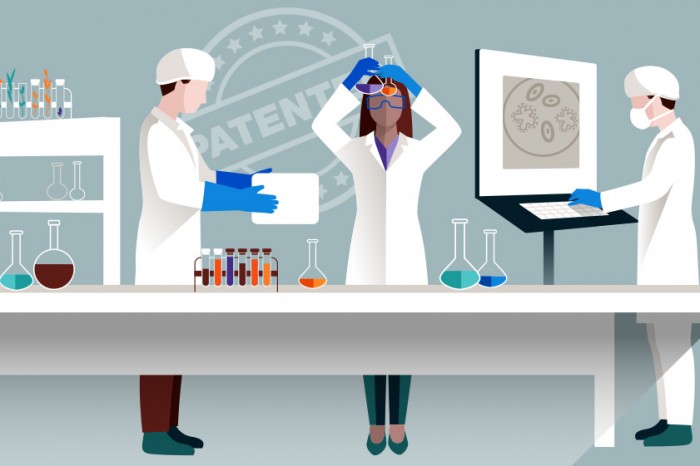
Research grants issued by the National Institutes of Health contribute to a significant number of private-sector patents in biomedicine, according to a new study coauthored by an MIT professor.
The study, published in Science, examines 27 years’ worth of data and finds that 31 percent of NIH grants, which are publicly funded, produce articles that are later cited by patents in the biomedical sector.
“The impact on the private sector is a lot more important in magnitude than what we might have thought before,” says coauthor Pierre Azoulay, a Sloan professor. And as the paper explains, even NIH-backed research projects cited only indirectly in later patents “demonstrate the additional reach that publicly funded science can have by building a foundation for private-sector R&D.”
After reviewing over 365,000 grants—nearly every NIH grant awarded between 1980 and 2007—the researchers also found that more than 8 percent of NIH grants generate a patent directly.
Intriguingly, the researchers discovered no significant difference between “basic” and “applied” research grants in the frequency with which they helped generate patents; both kinds of research spill over into productive private-sector uses.
“If you thought the NIH exists in an ivory tower, you’re wrong,” Azoulay says. “They are the nexus of knowledge that really unifies two worlds.”
The NIH encompasses multiple research institutes and is the world’s biggest source of public funding for biomedical research, dispensing about $32 billion annually in grants. “Grants produce papers, and papers are cited by patents [generated] by pharmaceutical firms,” says Azoulay. “It’s hard to think of [a drug] that doesn’t have a patent."
Keep Reading
Most Popular
Large language models can do jaw-dropping things. But nobody knows exactly why.
And that's a problem. Figuring it out is one of the biggest scientific puzzles of our time and a crucial step towards controlling more powerful future models.
How scientists traced a mysterious covid case back to six toilets
When wastewater surveillance turns into a hunt for a single infected individual, the ethics get tricky.
The problem with plug-in hybrids? Their drivers.
Plug-in hybrids are often sold as a transition to EVs, but new data from Europe shows we’re still underestimating the emissions they produce.
Google DeepMind’s new generative model makes Super Mario–like games from scratch
Genie learns how to control games by watching hours and hours of video. It could help train next-gen robots too.
Stay connected
Get the latest updates from
MIT Technology Review
Discover special offers, top stories, upcoming events, and more.